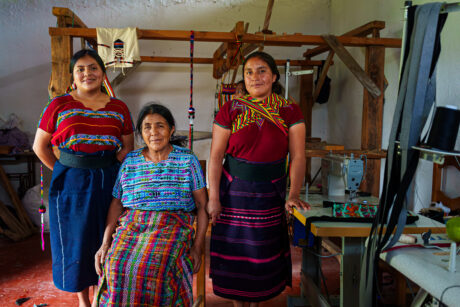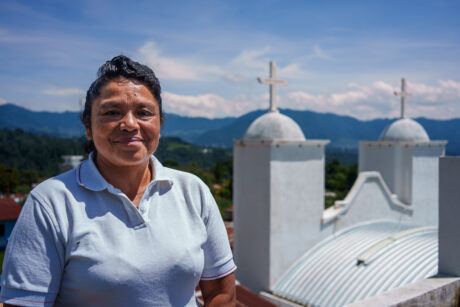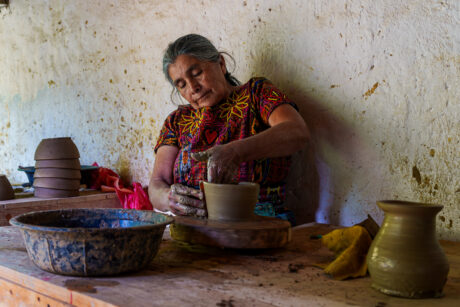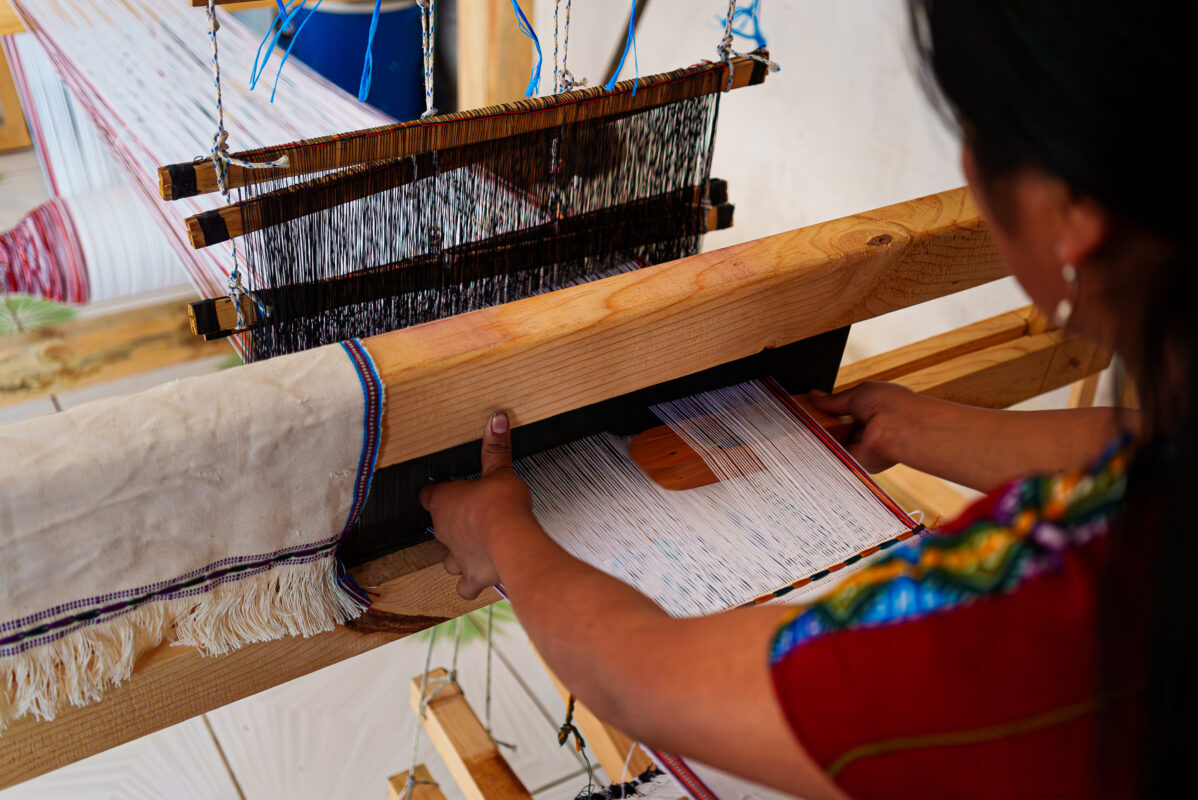Totonicapán, GuatemalaTo be a comadrona is to be an ancestral authority in your community. In the Maya worldview, it is considered sacred work and is the destiny of someone who is born with the gift of receiving new life.
Maria Luisa Tzul Pacheco, a 60-year-old midwife, or comadrona, from the community of Nimapá, Totonicapán, says she inherited the gift.
“My grandmother was a comadrona, my mother was the second generation and I am the third,” she says.
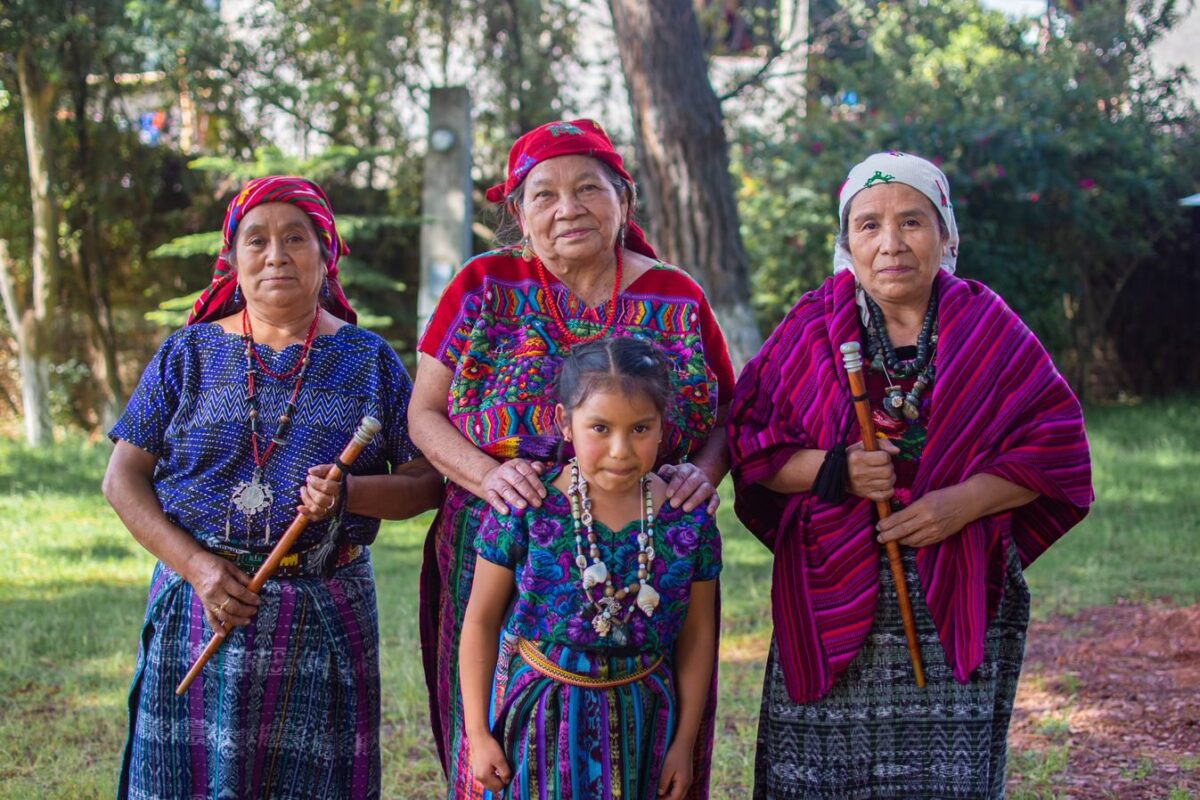
The role of Maya midwives in the Western Highlands of Guatemala holds particular importance in rural communities with limited access to medical services. In such settings, comadronas provide holistic health care to pregnant women, including pre-natal and post-partum support.
Despite the vital role midwives play in their communities, they often face discrimination within the public health system. Many hospitals do not allow midwives to accompany their patients during birth. Trainings and care provided within the public health care system often do not include space for Mayan medical practices, which in many families has been used for generations.
What’s more, many older midwives do not speak fluent Spanish, preferring to communicate in their native Mayan language, which can be an issue when health authorities exclusively speak Spanish.
To address the range of complex challenges comadronas face while also building their knowledge base and capacity to address conflict, the Peacebuilding Project, or Tejiendo Paz in Spanish, is working with midwives in the Western Highlands to tackle the social divisions created by discrimination and to prevent violence against women and girls.
Funded by the U.S. Agency for International Development, Tejiendo Paz works to reduce social conflict and violence, and to strengthen social cohesion in the Western Highlands of Guatemala. Tejiendo Paz is implemented by Creative Associates International, in partnership with PartnersGlobal and ProPaz, reaching 130 communities in 15 municipalities.
One of those communities is Nimapá, Totonicapán, where the Peacebuilding Project implemented a training series with Maria Tzul, her mother and 29 other midwives. The nine-session training included raising awareness among the midwives of their rights and how to effectively exercise them within the public health system to combat discrimination against midwives, which community members identified as a prevalent form of social conflict.
The Peacebuilding Project works with community members, including men, women and youth, to develop community-led action plans to address conflict and prevent violence. The action plan in Nimapá prioritized supporting midwives.
“Comadronas don’t have a degree, they aren’t gynecologists, they didn’t attend university,” says Juana Tax, Totonicapán’s Departmental Delegate for the Office for the Protection of Indigenous Women (DEMI, its Spanish acronym) and a committed advocate for the inclusion of comadronas in health care spaces.
This has led to discrimination against the midwives in the hospital setting, Tax says. “They usually aren’t allowed in with their patients, they are spoken to very rudely and they are blamed for every obstetric emergency that women seek hospital care for.”
A vital role in rural health care
A 2015 study conducted by the U.S. Agency for International Development found that in rural areas of Guatemala there are just 12.5 health care workers for every 10,000 people. At least 25 percent of Guatemalans live farther than an hour’s travel time to a basic health care facility–many in mountainous areas that are hard to reach.
Midwives are committed to the health and well-being of the women in their communities, attending to 79 percent of births in the Western Highlands. They are available at all hours and serve women in the most remote areas of the country, often walking for hours and for very little pay. Many Maya women prefer a comadrona because they trust them, share their beliefs and speak their native language.
Their knowledge is passed down through generations, often from grandmother to daughter to granddaughter, as is the case with Tzul.
“When I’m touching a patient, I can tell how many months along she is. My hands know,” shares Tzul. “We know where the baby is and the position it’s in, because this is a gift.” Tzul adds “we also know when a pregnancy is high risk and needs to be attended to in a health center rather than in the mother’s home.”
One of the DEMI’s priorities is access to culturally relevant healthcare for indigenous women. Comadronas are part of a culturally relevant healthcare, Tax says.
But seeking medical care for a patient can be a double-edged sword for midwives. In addition to being blamed for the emergency by health care workers, the family may not be happy either.
“The culture can be a challenge. Many times, the husband, mother-in-law, or grandmother say the birth must happen at home and only in the home,” explains Juan Francisco Tzunun, representative from the Rural Development Cooperation of the Western Highlands (CDRO, its Spanish acronym). “If a comadrona sees that a woman can’t have the baby at home and refers them to the hospital, the comadrona is often emotionally abused by the woman’s family. They’ll say she isn’t a good comadrona or doesn’t do her job well or they won’t want to pay her.”
Inter-institutional coordination and responses in support of midwives
The Peacebuilding Project’s training topics included a focus on conflict mitigation, dialogue, leadership, and self-esteem – providing the women with the skills and confidence to negotiate with health authorities and support their patients.
Importantly, the Peacebuilding Project did not implement the training with the midwives in Totonicapán alone. The training brought together key players invested in the rights and health of indigenous women to foster their working relationship and ensure midwives know what resources are available to them.
Sessions were implemented in coordination with the Government of Guatemala through a local health center that is part of the Ministry of Health and through the DEMI. In addition, CDRO, a grass-roots civil society organization, provided support.
Comadronas prevent familial conflict and violence against women and girls
Given their role in their communities, midwives often act as mediators of conflict within families. Although attitudes around gender are changing, some men may still prefer boys, and will blame their wives if they give birth to a baby girl. Husband and wives may also have differences of opinion over the type of care the mother receives or the place of birth, as well as options for birth control and reproductive decisions. In these situations, the midwife often plays a conciliatory role.
The training sessions related to conflict mitigation and dialogue were designed to also serve the midwives in preventing and addressing intra-familial conflict.
“Thanks to the trainings with the Peacebuilding Project, the comadronas learned strategies for having effective communication and preventing conflict,” shares local public health post’s Health and Nutrition Coordinator Aracely Garcia, who participated in the training. “Through using their lived experiences with patients, the training created a space for dialogue and problem-solving.”
Violence against women and girls is a prevalent form of conflict in the Western Highlands. According to the Secretariat Against Sexual Violence, Exploitation and Human Trafficking (SVET, its Spanish acronym), sexual violence increased by 40 percent during the COVID-19 pandemic.
Given the intimate role that midwives play in the lives of women and families, Tzul and her midwife peers are uniquely positioned to prevent and respond to violence against women and children.
“The fact that Comadronas are counselors and mentors within the community is important,” shares Tax. “They can learn about the different aspects of violence and women’s rights, then they can take that knowledge and those talking points, and they can address these issues directly, saying these are the rights women have, this is how the law protects them, these are the consequences.”
Midwives are a critical source of information for women and girls on their rights and how to exercise them. They are also a source of information on how to report violence and resources available to victims and survivors of domestic and violence against women and girls.
The training in Nimapá included a session on preventing, identifying, and reporting violence against women and girls.
“There is misogyny,” Tzul explains. “I tell the women not to allow this. Before it was accepted, but not anymore. The trainings tell us that men shouldn’t hit women and women shouldn’t hit men. If I see that a couple is fighting a lot, I tell the woman to report it. The Peacebuilding Project tells us women not to allow violence.”
In addition to responding to community-level priorities, Tejiendo Paz has joined forces with the SVET to implement departmental-level trainings with midwives. These trainings focus on preventing and reporting sexual violence, exploitation, and human trafficking and are implemented with the National Movement of Midwives Nim Alaxik, a national association of comadronas. Tejiendo Paz also partnered with the Foundation for Education and Social Development (FUDESA is the Spanish acronym) to develop a communication campaign on preventing domestic violence, reaching over 70,000 people in the Western Highlands.
“The trainings have helped us,” shares Tzul. “When they teach about men that hit their wives, treat them poorly, when there is intrafamilial violence, violence against women – these topics help us.”
“We all have a gift in this life,” adds Tzul. She and other comadronas are using their gift to support women in their communities, not only to give birth to healthy, thriving babies but also to ensure that women and girls live a life free from violence.
